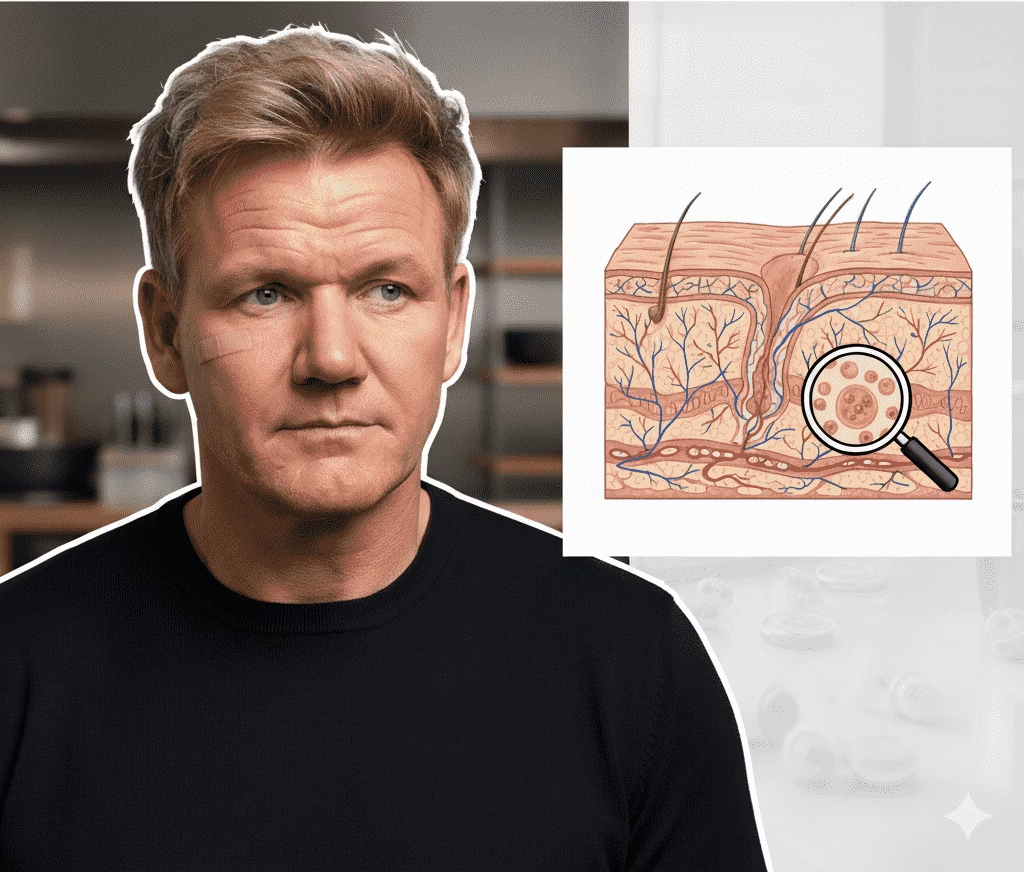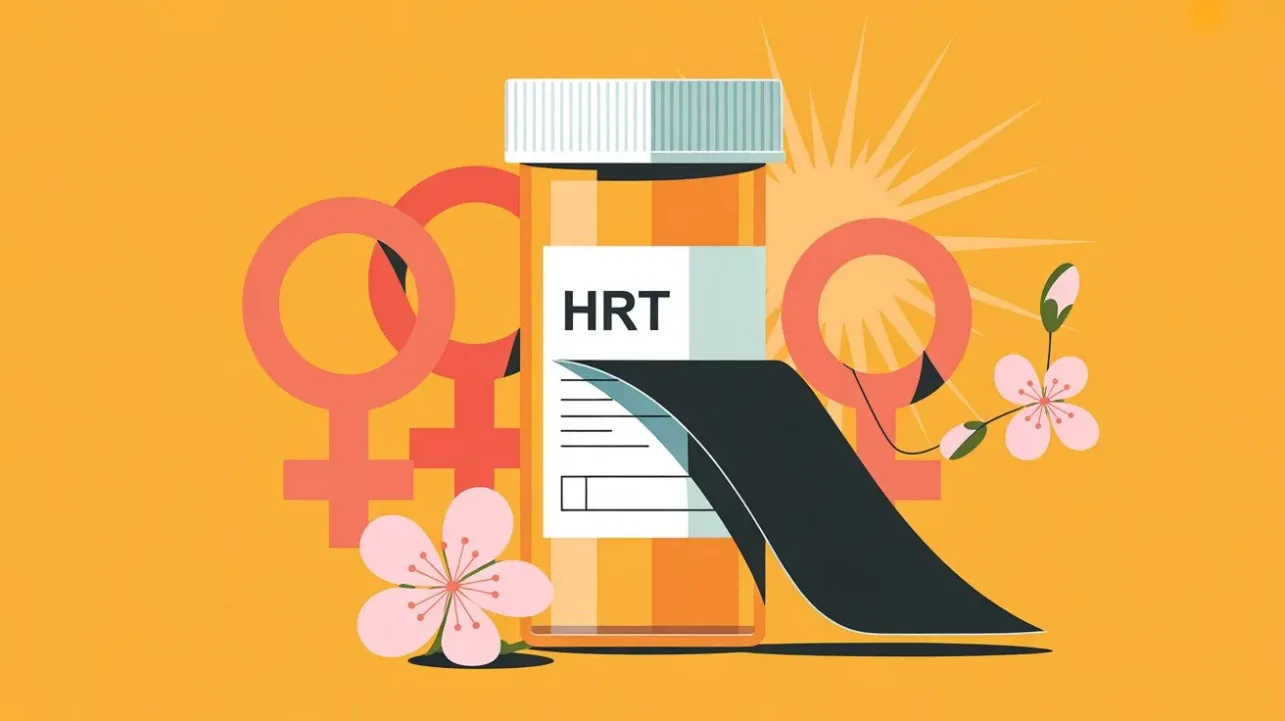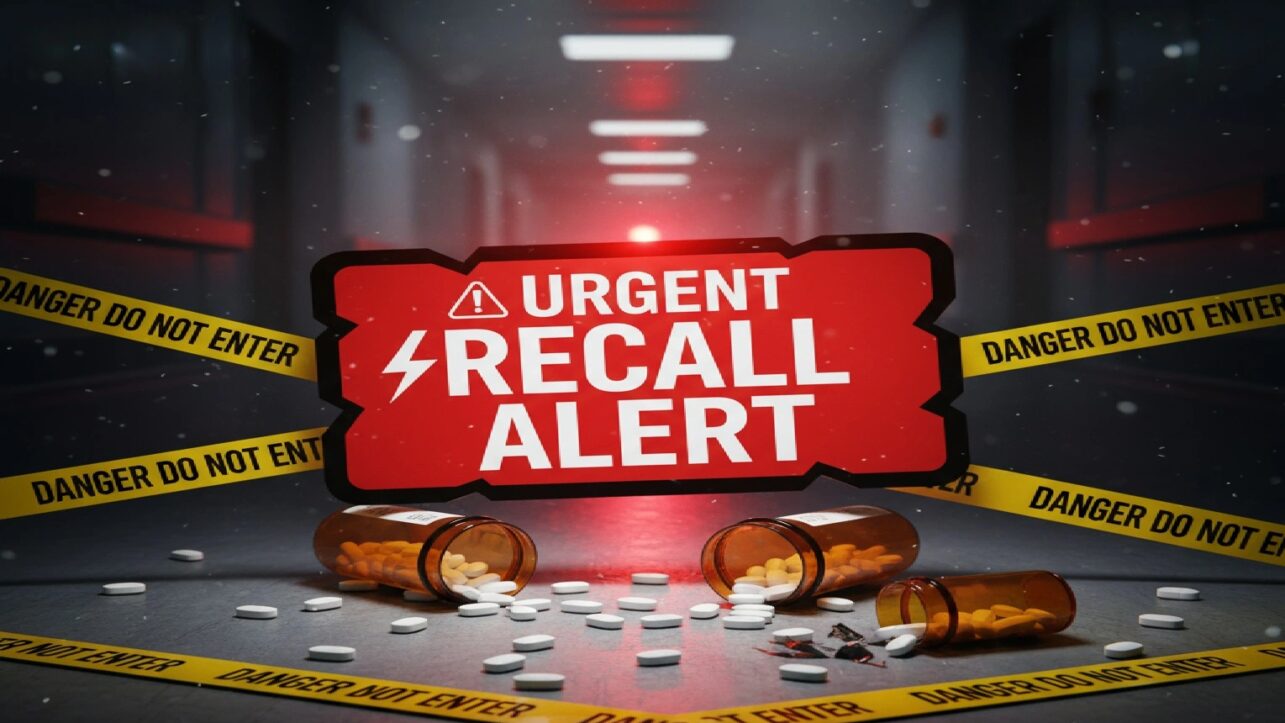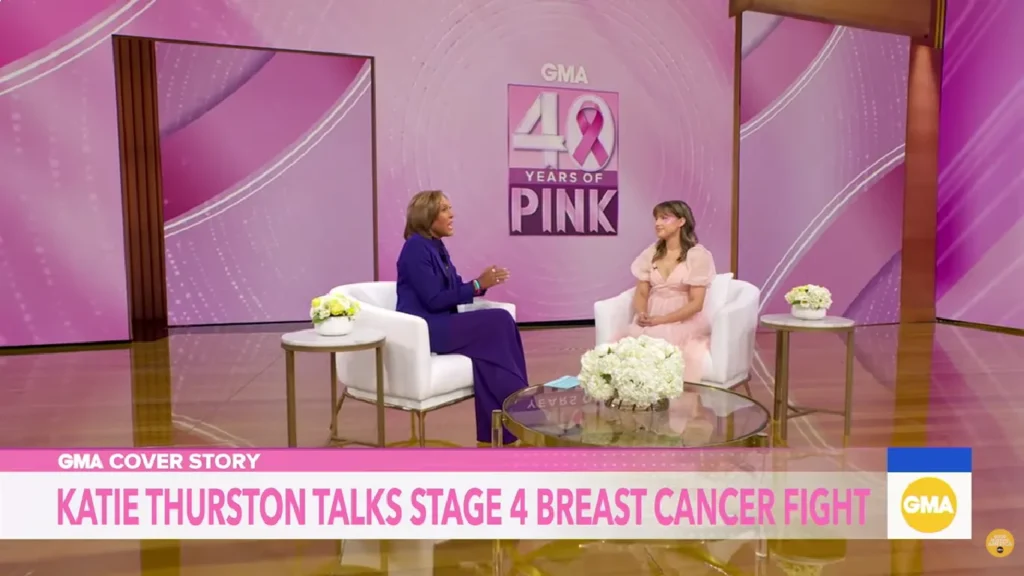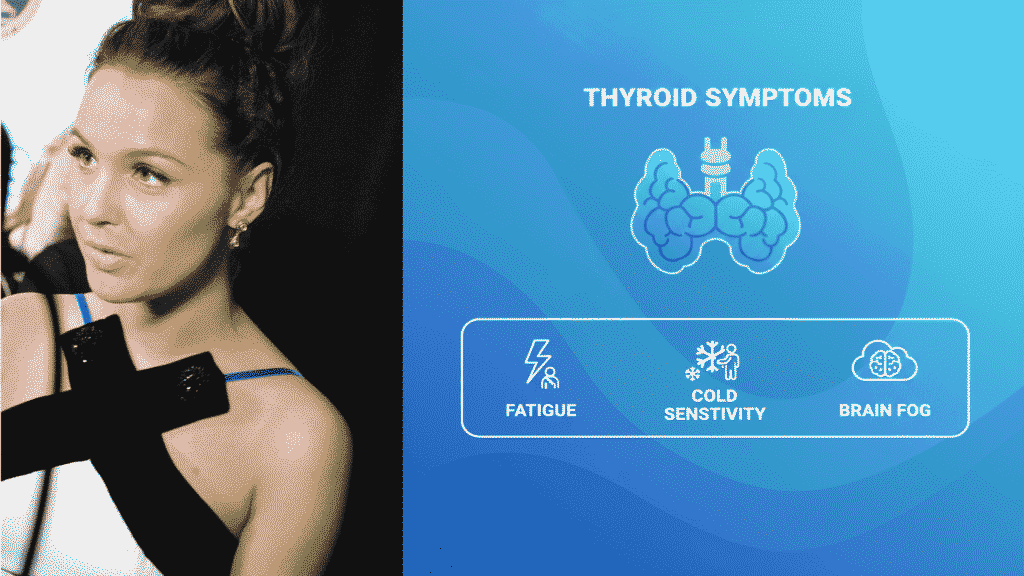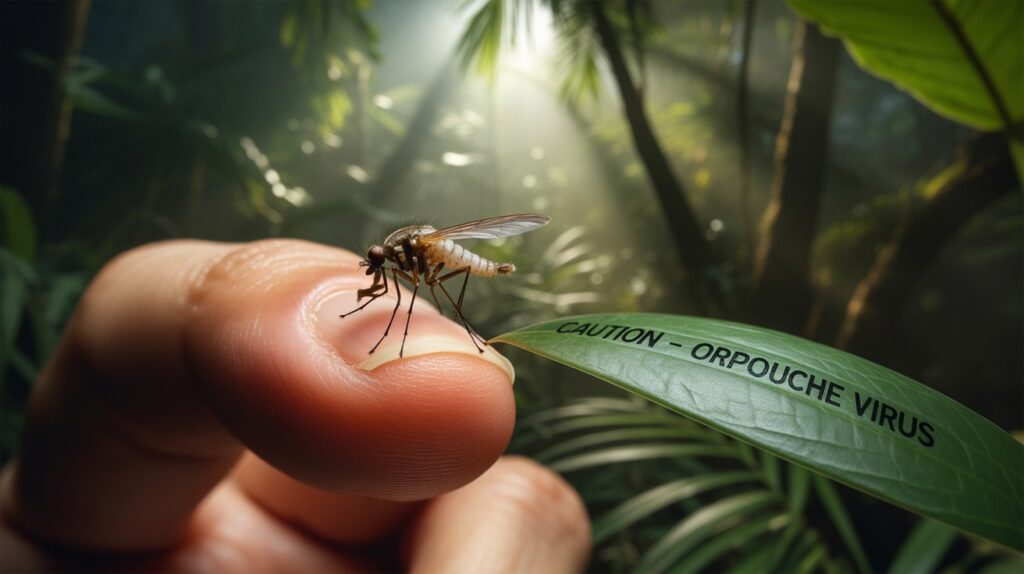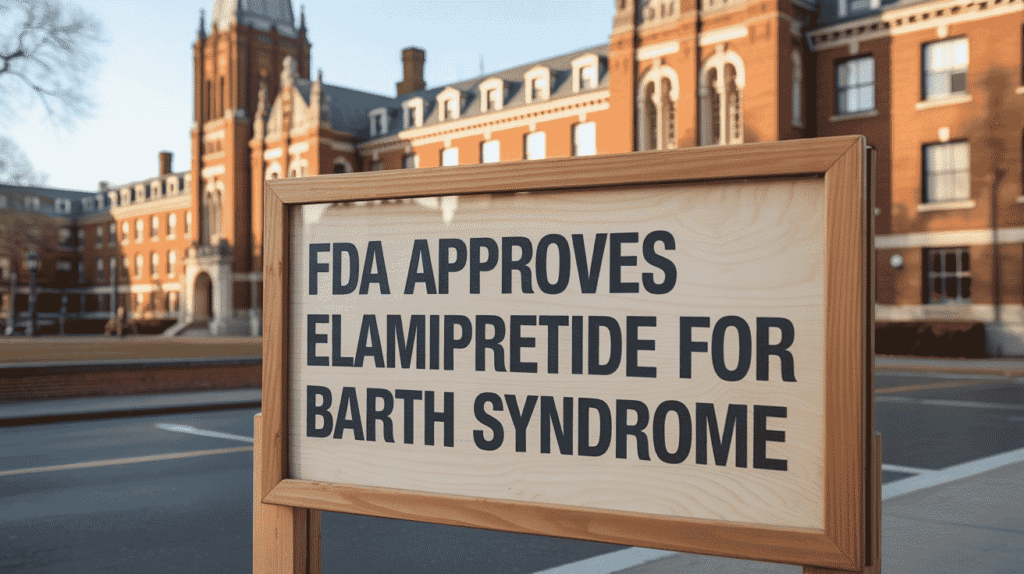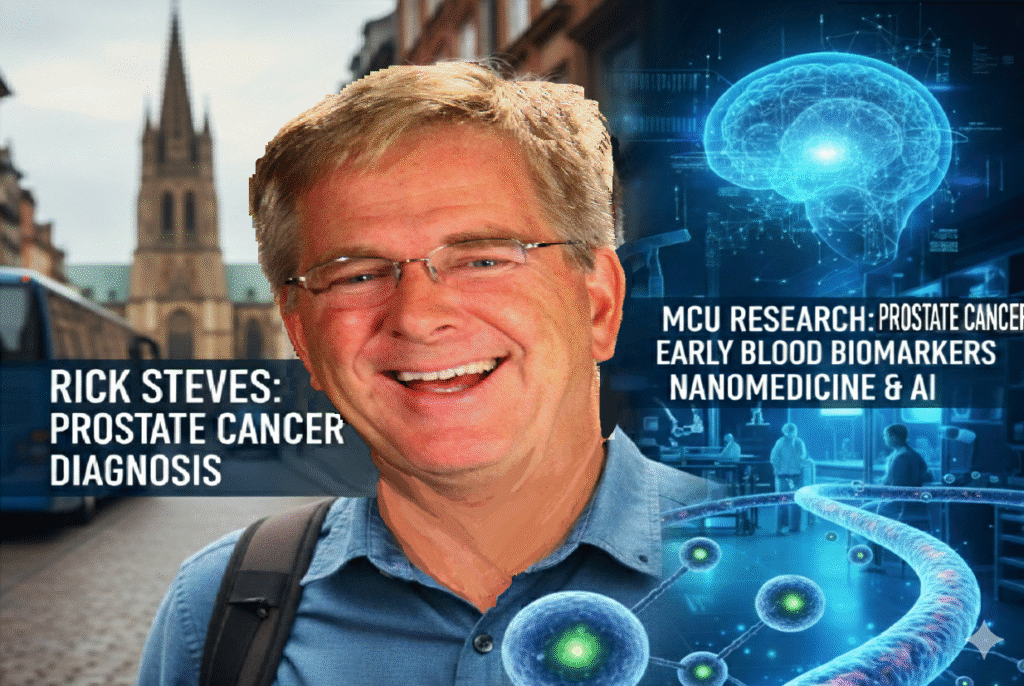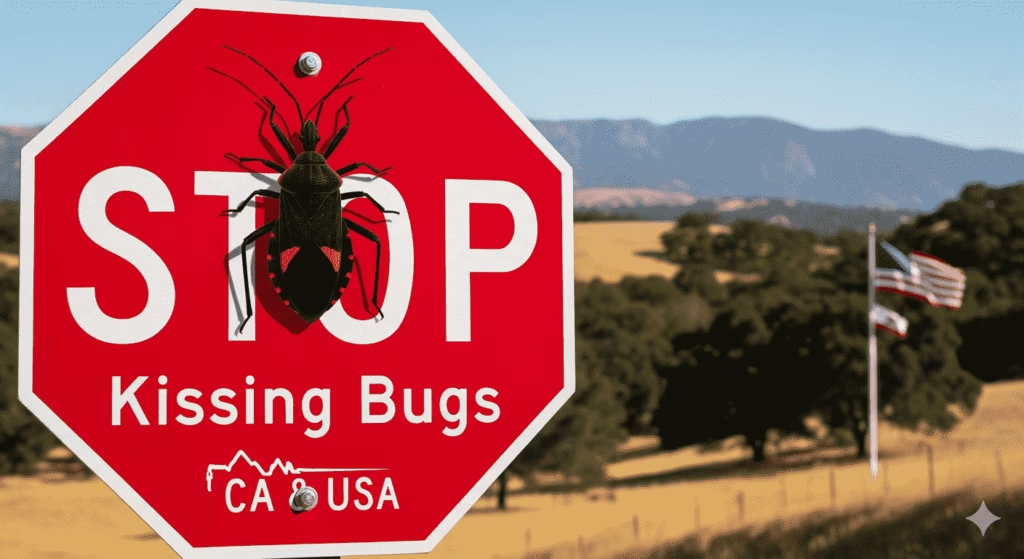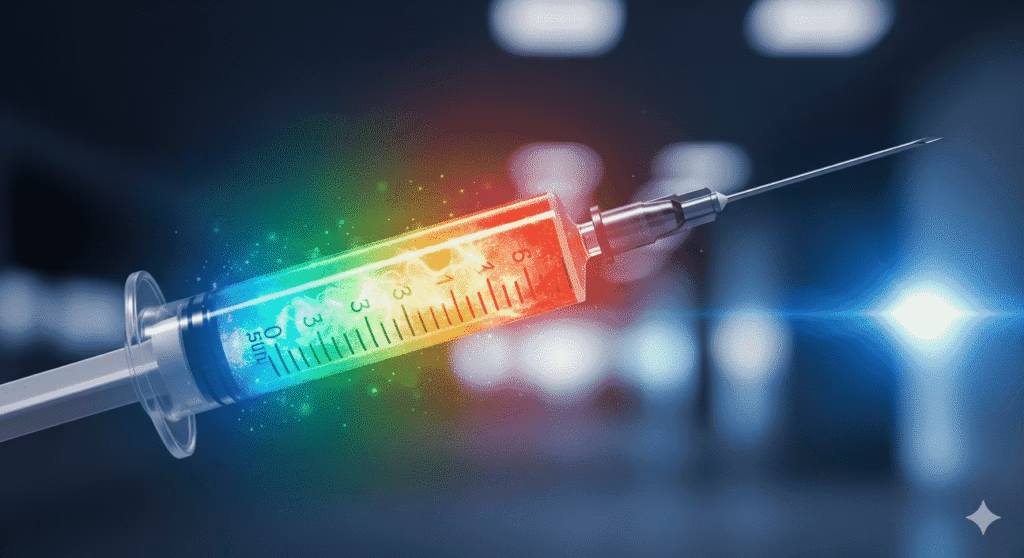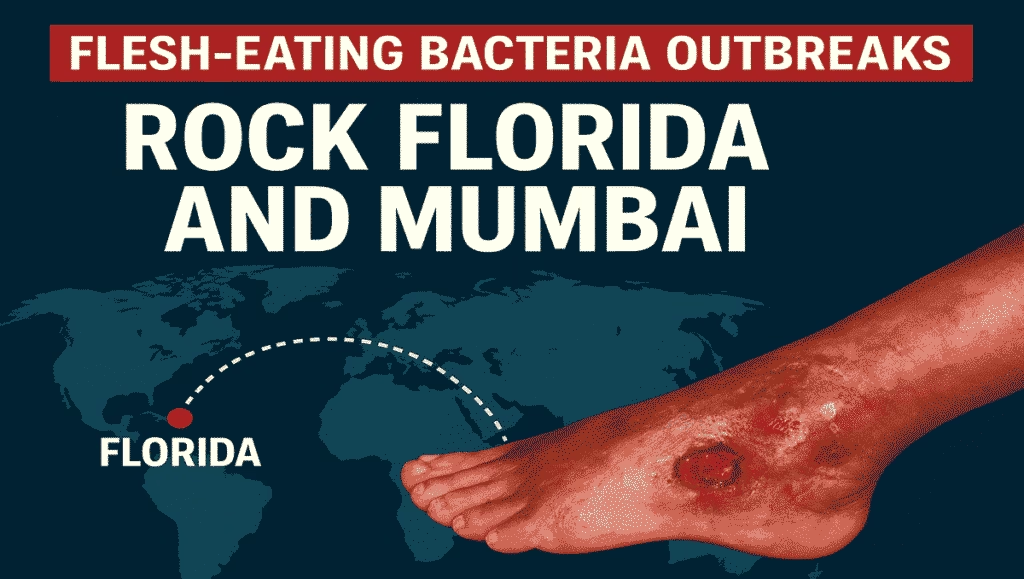Celebrity chef Gordon Ramsay recently revealed he underwent surgery to remove skin cancer, specifically basal cell carcinoma (BCC), bringing renewed attention to one of the most common forms of skin cancer worldwide. The 58-year-old, known for his fiery personality on hit shows like Hell’s Kitchen, took to social media to share images of his post-surgery face with a bandage below his ear and expressed gratitude to his medical team for their swift intervention. Ramsay used the opportunity to urge his fans to remember sunscreen, humorously assuring them that the procedure “isn’t a facelift” and joking about needing a refund if it were.
Ramsay’s post came as a candid reminder of the dangers of sun exposure. He thanked the healthcare professionals at The Skin Associates for promptly removing the basal cell carcinoma and encouraged everyone to protect their skin from ultraviolet (UV) light through sunscreen use, seeking shade, and wearing protective clothing. Messages of support poured in from fans, friends like TV judge Robert Rinder, and cancer organizations including Cancer Research UK, which praised Ramsay for raising awareness about sun safety.
For Ramsay, this health scare follows other challenges; just over a year ago, he suffered injuries from a bike accident but has since made a full recovery. Today, he continues to be active professionally, hosting TV shows and running his esteemed Michelin-starred restaurants.
His announcement has sparked global discussions about skin cancer awareness and raised important questions: Is basal cell carcinoma deadly? How can it be prevented?
What Is Basal Cell Carcinoma?
Basal cell carcinoma is the most common type of skin cancer according to American Academy of Dermatology, representing about 80% of all skin cancer cases worldwide.
- Begins in basal cells at the bottom of the skin’s outer layer
- Appears as a pearly bump, scar-like patch, or sore that doesn’t heal
- Most often develops on the face, scalp, ears, and neck
- Rarely spreads (metastasizes) but can cause local tissue destruction
Is Basal Cell Carcinoma Deadly?
While BCC is malignant and locally invasive, the risk of death from this cancer is extremely low. Most cases are effectively cured through surgical removal or other treatments when detected early.
Metastasis is very rare, estimated at less than 0.1%, and the mortality rate is approximately 0.05%. However, if left untreated, BCC can cause significant local tissue destruction, damage to the skin, cartilage, and even bone, which may lead to disfigurement and complications. In rare advanced cases, BCC may invade vital organs or nerves, potentially causing serious complications or becoming life-threatening, but such outcomes are exceptions. People who develop one BCC are at risk for subsequent skin cancers and should maintain vigilant skin surveillance and sun protection measures. Recurrence and multiple lesions necessitate ongoing medical follow-up.
Key Statistics on Basal Cell Carcinoma
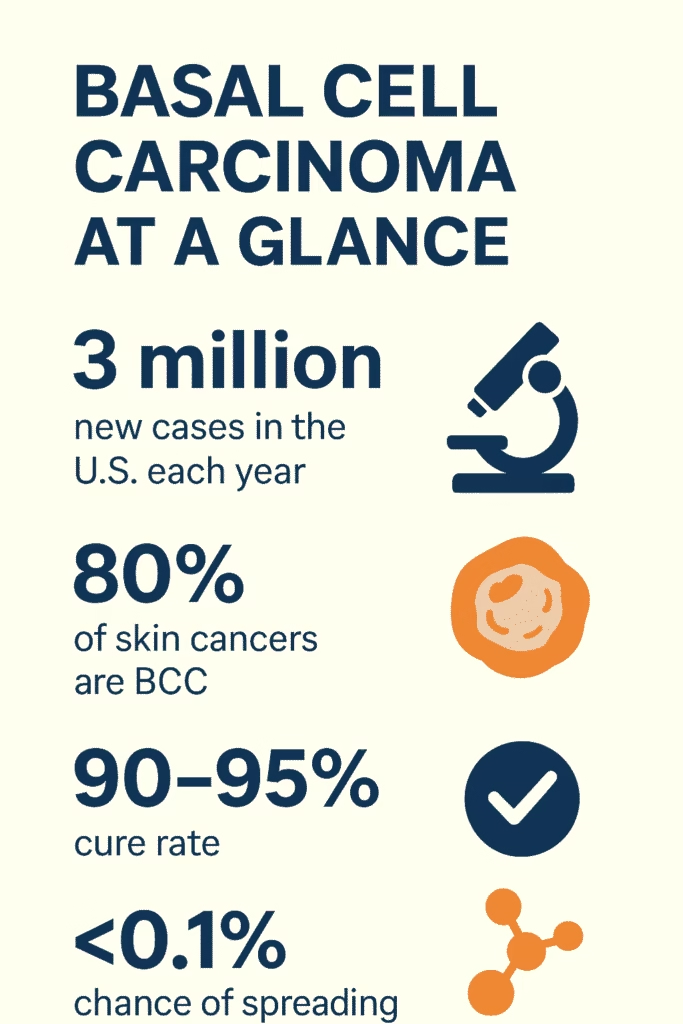
- 3 million new cases in the U.S. each year
- 80% of skin cancers are BCC
- Cure rate of 90–95%
- <0.1% chance of spreading
- Sunscreen reduces risk by 40–50%
Treatment Options
Doctors typically recommend:
- Surgical removal (standard excision)
- Mohs surgery (precise layer-by-layer removal, high cure rate)
- Topical therapies (for early lesions)
- Radiation or targeted drugs (for rare advanced cases)
🔗 Reference: Mayo Clinic – Basal Cell Carcinoma Treatment
Preventing Skin Cancer
The World Health Organization warns that up to 90% of skin cancers are caused by UV exposure. Key prevention steps include:
- Daily use of SPF 30+ sunscreen
- Wearing wide-brimmed hats and protective clothing
- Avoiding tanning beds
- Regular skin checks for new or changing moles
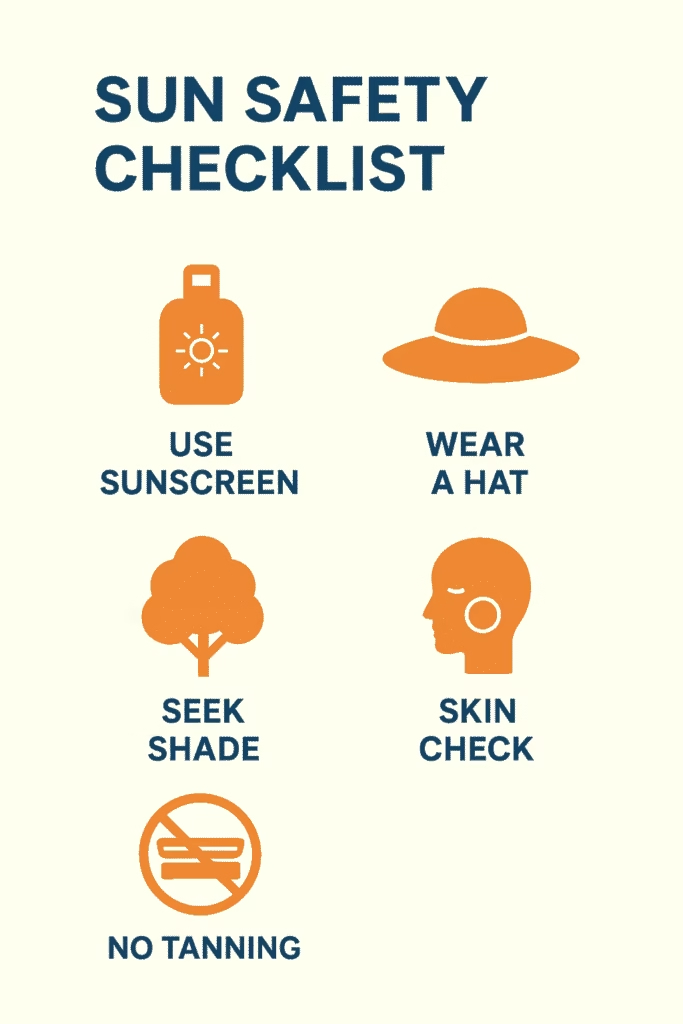
Ramsay’s Role in Raising Awareness
By openly discussing his surgery, Ramsay has helped normalize conversations about skin cancer and the importance of early detection. Doctors hope his message will reach audiences that often underestimate sun damage. Gordon Ramsay’s skin cancer diagnosis shines a spotlight on basal cell carcinoma, a prevalent but rarely fatal form of skin cancer.
While BCC is generally manageable with early intervention, it remains a serious condition that requires proper sun protection and medical vigilance. Ramsay’s transparent discussion of his health journey not only humanizes the challenges faced by many but also empowers people to prioritize their skin health and seek medical advice promptly when suspicious lesions arise.
Is basal cell carcinoma the same as melanoma?
No. Melanoma is far more dangerous, while BCC is slow-growing and rarely spreads.
Can basal cell carcinoma return after treatment?
Yes. Recurrence rates vary, which is why follow-up checks are vital.
Can sunscreen really prevent it?
Yes. Studies show sunscreen lowers risk by 40–50%.
Who is most at risk?
People with fair skin, high sun exposure, or family history of skin cancer.
Should everyone be screened?
Annual skin checks are recommended, especially for people over 40 or with high UV exposure.

